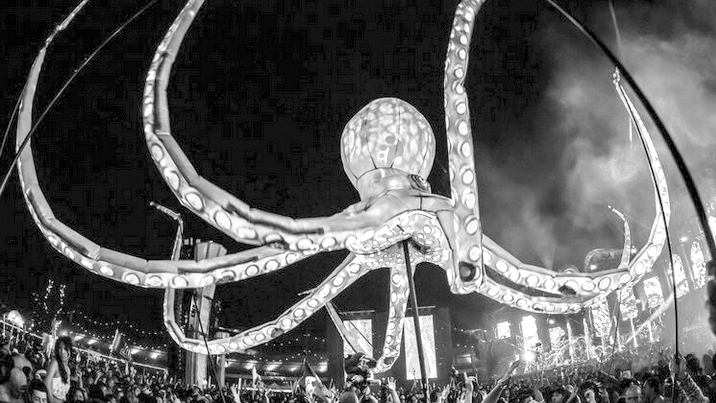Engaging electronic dance music culture
Christian fans must be examples in keeping up with society.
April 29, 2015
So what is electronic dance music culture? Is it “the new rock?” Are Coachella attendees the new “flower-children hippies?” No matter what people compare it to, the hundreds of thousands of people attending weekend festivals and the millions more worldwide listening to electronic artists have created an unprecedented genre of music and a unique counter-culture. Within this genre lie many more sub-genres such as dubstep, drum and bass, glitch hop, moombahton and even derisive labels like “brostep.”
But the cohesion of these elements of EDM derive from the values that it promotes — communalism and individual identity. In other words, at these events, you are encouraged to feel comfortable in your own skin while joining tens of thousands of others in the aesthetic of the music. Successful EDM events represent a clean break from society as opposed to many other concert events that are subtly heralded as a continuation of normal social interaction.
CREATING A MAGICAL BUBBLE
The anonymously written Raver’s Manifesto describes the experience like this: “And somewhere around 35Hz we could feel the hand of God at our backs, pushing us forward, pushing us to push ourselves to strengthen our minds, our bodies and our spirits. Pushing us to turn to the person beside us to join hands and uplift them by sharing the uncontrollable joy we felt from creating this magical bubble that can, for one evening, protect us from the horrors, atrocities and pollution of the outside world.”
People should not dismiss the music and culture promoted here as hippie communes because they are mainstream. Many people forget to consider the cultural process of this genre, from the making of the music to its dissemination to what we ultimately see in its popularization. EDM, as we commonly see it, is a business. There are people driven by profit and people driven by the art, but more importantly, there are businessmen making multi-billion dollar investments for EDM to become the new pop culture. As a result, many pop songs today have replaced a bridge with a dubstep bass-drop to please consumers. Through collaborations like “I Want You To Know” by Zedd, featuring his girlfriend Selena Gomez, the two genres are, quite literally, becoming married and we can likely expect more like it from Taylor Swift and her newest boyfriend Calvin Harris. The relatively instantaneous rise of EDM has created an accompanying consumerist culture wanting an immediate fix to their cravings for the drop causing many in the genre to criticize artists who look to “crossover” into pop.
EDM CRITICISM
In a Thump article, internationally acclaimed DJ Seth Troxler criticized EDM’s promotion of the festival experience, where high-energy, sardine-packed bodies reign, and advocates a return to the traditional club’s “higher-quality” music. He praises the intellects who know this lifestyle is not the answer to life and understand there is something out there that is more fulfilling.
“Intellect is a true indication of taste. Some smart kids are standing in these EDM festivals,” observes Troxler.
NEW FRONTIERS
This subculture continues to enter new frontiers musically, economically, socially and even spiritually, as studied by the international EDMC scholarly journal DanceCult. Just like any culture, EDM needs constructive criticism from people like Troxler. As a part of its collective nature, we as Christian EDM fans, enjoying its sounds during Mock Rock and in the comfort of our dorms, must not merely avoid its morally concerning elements but instead seek to be those intellects who raise the musical and ethical standards of the subculture. Our identity in Christ, while maintaining our individual self, is not that dissimilar from values of EDM. It is up to us as Christians to exemplify those values to the culture.







